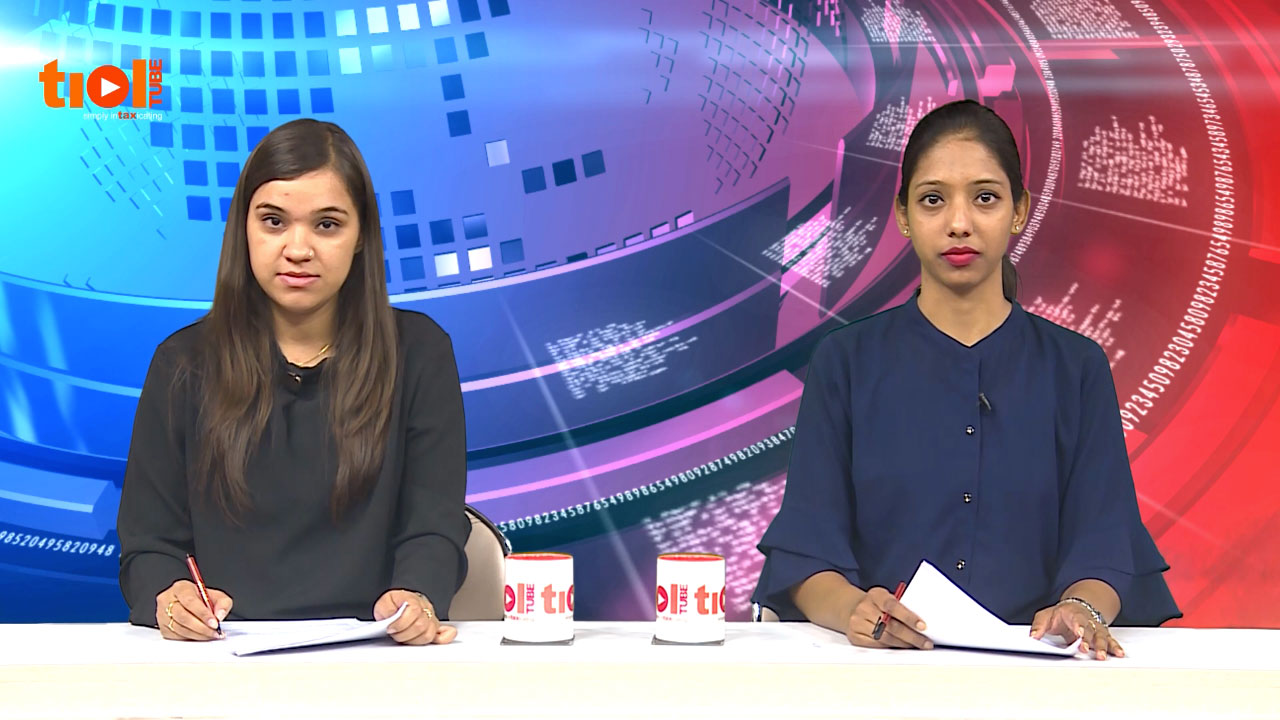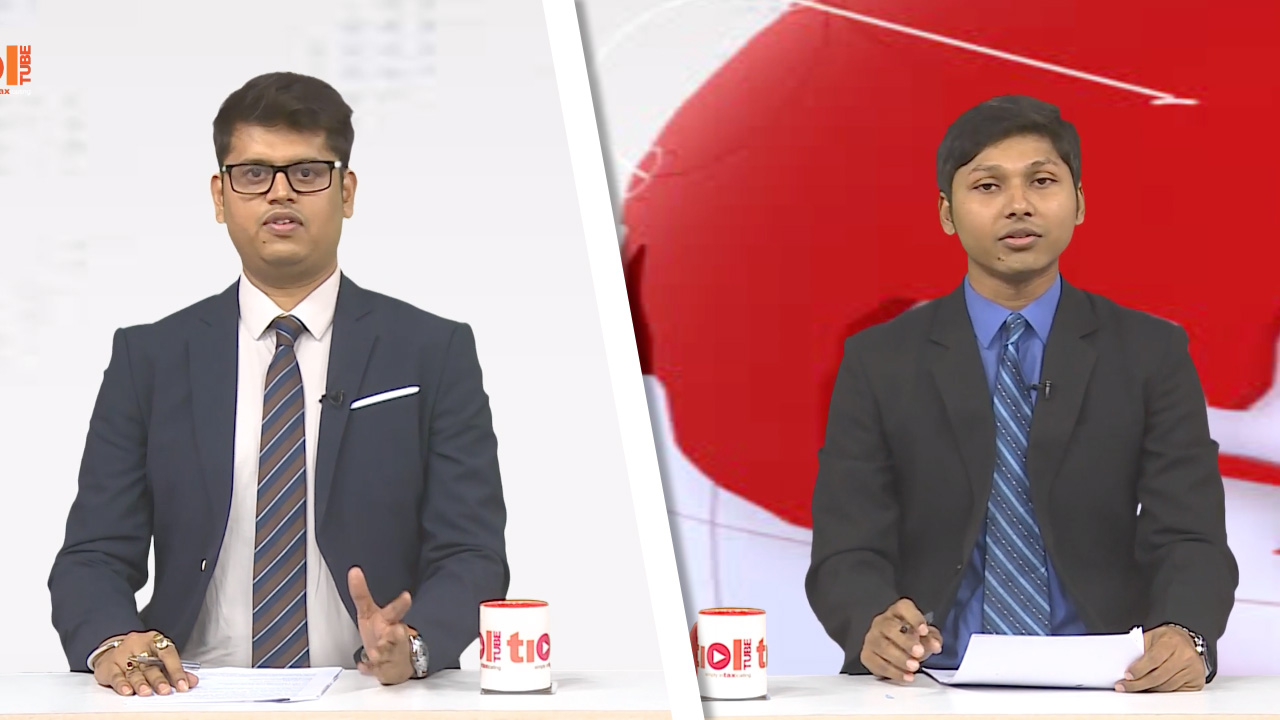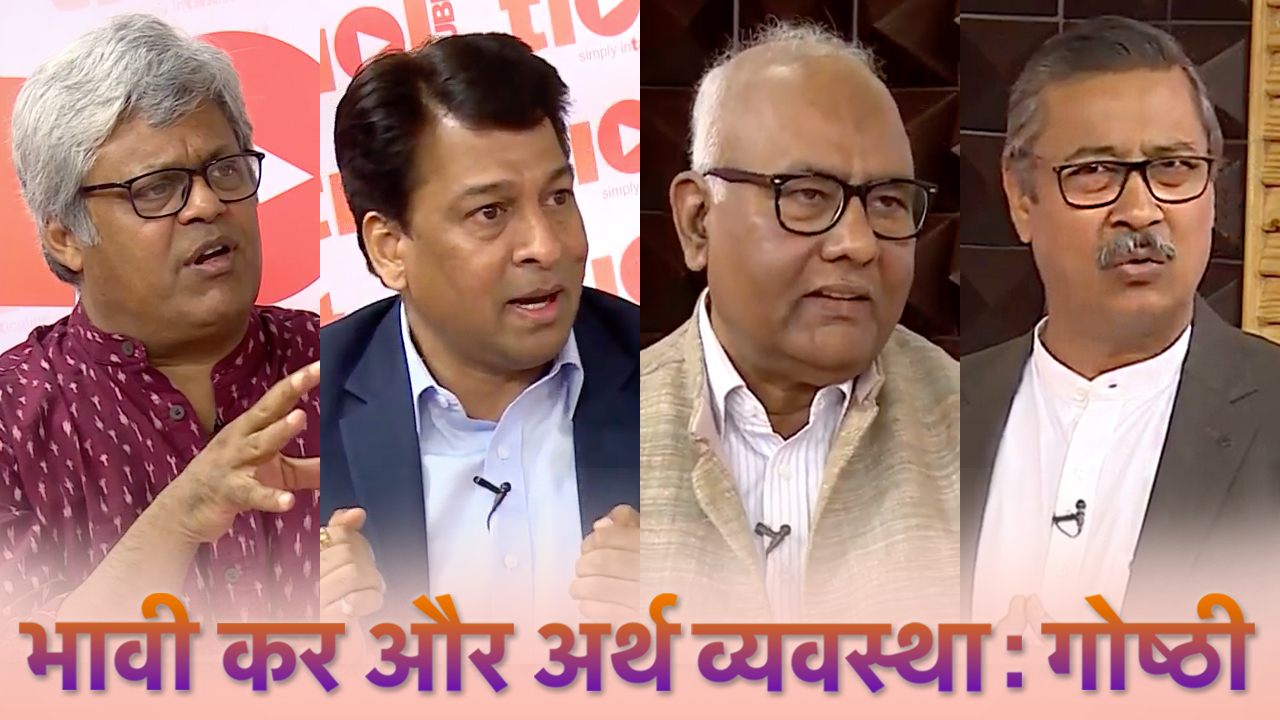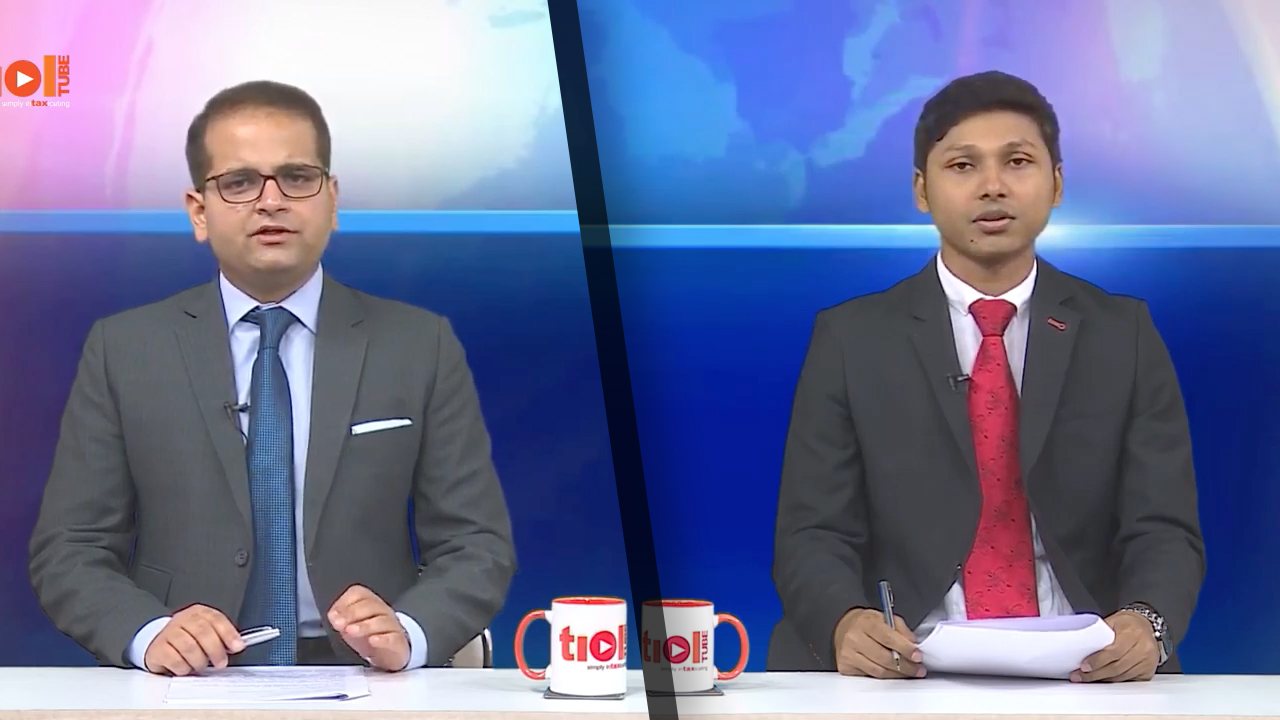|
SERVICE TAX
2019-TIOL-1276-CESTAT-ALL
CST Vs Meroform India Pvt Ltd
ST - The assessee-company is registered for providing various services such as Erection, Commissioning & Installation, Business & Exhibition Service, GTA & Works Contract - Upon audit conducted by the Revenue, it was observed that the assessee booked income on account of hiring of office furniture, which in the Revenue's opinion, would attract levy of service tax - The assessee explained that it hired furniture on rent to visitors in business exhibitions as per the requirement of the organizers and exhibitors and that the same was treated as deemed sale & VAT was paid on the same - The Revenue opined that such transaction was taxable as Supply of Tangible Goods service - SCNs were issued by invoking extended limitation alleging that the assessee failed to provide a copy of the contract or any other document evidencing that the right of effective control and possession have been passed on - It was noted that the assessee collected back the furniture from the user, on account of which the effective control remained with the assessee - Hence the Revenue opined there to be no sale of goods and that the levy of VAT for right to use did not affect the simultaneous levy of service tax - On adjudication, duty demand was raised under SOTG service with interest & equivalent amount of penalty u/s 76 of Finance Act 1994 and penalty u/s 77 of the Act - On appeal, the Commr.(A) quashed such order - Hence the Revenue's appeal.
Held: Admittedly, the assessee paid VAT on the transaction in question - Further, the SCN is presumptive in nature & there is no finding or allegation that the effective control over the goods or the furniture was not given by the assessee to the customers - The definition of SOTG service u/s 65(105)(zzzzj) provides that such services are for use without transferring the right of possessionm and effective control over such machinery, equipment and appliances - Hence the essential requirements for levying service tax under SOTG service have not been satisfied - The SCN and vague & hence not maintainable - Hence the O-i-A being challenged merits being upheld: CESTAT
- Revenue's appeal dismissed: ALLAHABAD CESTAT
2019-TIOL-1275-CESTAT-DEL
CCE Vs Medisales Consultants
ST - During the relevant period, the Revenue conducted search proceedings at the assessees' premises - Records seized included details of four other firms also owned by the proprietor of the assessee-company - These firms provided services to various manufacturers or medicines by procuring orders from the State Government - Other services provided included arranging supplies & collecting payments - All five firms received commissions from the medicine manufacturers for such activities - The Revenue opined that such activities were taxable as BAS u/s 65(19) of the Finance Act 1994 - On adjudication, it was held that only the first assessee was entitled to benefit under Notfn No 06/2005-ST, granting theshhold exemption to small firms - It was also noted that the proprietor of the main assessee owned all the other firms and so the turnover of all the firms was liable to be clubbed - Duty demand was raised with interest & penalties - On appeal, the Commr.(A) held that the turnover of the main assessee is to be clubbed with only one of the other four firms and that the other three firms were liable to pay service tax only in terms of their books of accounts after giving benefit under Notfn No 06/2005 - Hence the present appeals.
Held: The benefit of Notfn No 06/2005 is available to small service providers whose turnover is within the threshhold limit specified in the Notfn - In the present case, all five firms have their independence in the eyes of law - The commissions received have been accounted for in their books independently - Hence the benefit of threshhold exemption cannot be denied to any of the firve firms - The turnover over and above the exemption will attract service tax under BAS - Hence the adjudicating authority is directed to re-quantify the duty demanded: CESTAT
- Revenue's appeal partly allowed: DELHI CESTAT
CENTRAL EXCISE
2019-TIOL-998-HC-AHM-CX
Dharamshil Agencies Vs UoI
CX - The petitioner has invited the attention of court to Circular 1053/2/2017-CX and more particularly, paragraph 5.0 thereof which provides for consultation with noticee before issue of SCN - It was pointed out that a pre-SCN came to be issued to petitioner on 12.4.2019 calling upon them to remain present on 12.4.2019 at 4.00 p.m. - The petitioner immediately replied to the said pre-SCN asking for a reasonable time as the person who was aware of the entire facts was not reachable - It was pointed out that thereafter on the very same day, the impugned SCN has been issued, which is not in the spirit of circular - Issue Notice returnable on 27th June, 2019: HC
- Appeal disposed of: GUJARAT HIGH COURT
2019-TIOL-1278-CESTAT-BANG
Kumaraswamy Mineral Exports Vs CC, CE & ST
CX - This appeal is directed against O-I-A - By the said order, Commissioner (A) has upheld the rejection of refund claim filed by assessee in terms of Rule 5 of CCR, 2004 on the ground of time bar - Observations to the effect that "the limitation under Section 11B does not apply for refund of accumulated CENVAT credit" made by Karnataka High Court decision in case of mPortal are binding precedent - Assessee have in their submissions relied upon a series of case law including the decision of larger bench in case of J K Tyres - 2016-TIOL-1781-CESTAT-BANG-LB to submit that in case where there is judgement of jurisdictional High Court on the issue then it is binding - None of these decisions say that even obiter of jurisdictional High Court will be binding - Since the preposition sought to be canvassed by assessee by relying on decision of High Court is not the ratio decidendi of said decision, the said preposition cannot be binding contrary to the decision of Apex Court in case of Mafatlal - 2002-TIOL-54-SC-CX-CB and Madras High Court in case of GTN Engineering - 2012-TIOL-369-HC-MAD-CX - Tribunal is not in agreement with submissions made by assessee to the fact that date of payment of tax should be taken as starting point of relevant date in case of tax payment on reverse charge basis - Neither Notfn 5/2006-CE(NT) nor Rule 5 of CCR contemplates - Notification specifically refers to the export made during the quarter and not to the date of payment of tax/duty in respect of the service/goods for which refund is being claimed - When Notfn refers to the export of goods, there is no way by which such a submission can be agreed to - Now, it has been settled by Supreme Court in case of Dilip Kumar & Company - 2018-TIOL-302-SC-CUS-CB that in case where there is any ambiguity in a Notification that ambiguity should be resolved in favour of Revenue - As far as claim for refund under protest where any agreement with the submissions made by revenue to effect that refund claim cannot be filed "under protest" only what can contemplate is payment of duty is "under protest" in case where duty is "under protest" period of filing refund claim will not be hit by limitation provided under Section 11B - No merits found in submissions of assessee in this regard - Since the issue involved is in respect of refund of accumulated credit and not the duty paid, the provision of Section 11BB will not be applicable - Refund of accumulated credit cannot be equated to the refund of duty paid and hence the provisions of Section 11BB will not be applicable - Further, during the entire period this accumulated credit was available with the assessee they would have not suffered any loss on this account - Since, adjudicating authority and Commissioner (A) have not considered the refund claim quarter-wise specifically in view of Para 2 of Notfn 5/2006-CE(NT) the matter needs to be reconsidered by them - Thus, the matter remanded back to the adjudicating authority for consideration the refund quarter-wise and determine whether it is hit by limitation: CESTAT
- Matter remanded: BANGALORE CESTAT
2019-TIOL-1277-CESTAT-HYD
Sri Lakshmi Prasanna Agro Paper Industries Ltd Vs CCT
CX - The issue involved is that the assessee defaulted in payment of central excise duty - They did not pay the amount of duty within 30 days from the due date as required - Accordingly, in terms of Rule 8 (3A) of CER, 2002, they are required to pay duty in respect of clearances after this 30 days grace period consignment wise and through PLA - The said Rule 8 (3A) prohibits use of CENVAT Credit for clearances made after the grace period of 30 days - The quantity of goods so removed was 139.55 M.Ts valued at Rs. 40,81,467/- involving a duty of Rs. 2,16,773/- - Apart from the above, assessee also availed CENVAT Credit twice on the same invoice amounting to Rs. 4,620/- - As far as the penalty imposed for violation of Rule 8(3A) of CER, 2002 is concerned, High Court of Gujarat has struck down this Rule and the judgment of High Court of Gujarat has been stayed by Supreme Court - The High Court of Delhi in case of Space Telelink Limited held that the ratio of judgment of High Court of Gujarat would still apply notwithstanding the fact that it has been stayed by Apex Court - It has been held that only the operation of judgment is stayed and not the underlying basis of judgment itself - The penalty imposed under Rule 25(1)(a) of Central Excise Rules for contravention of Rule 8(3A) is liable to be set aside - As far as the penalty of Rs. 2,000/- imposed for availing CENVAT Credit twice on the same invoice is concerned, the amount involved is small but the penalty is equally small and commensurate with the violation of CCR, 2004 and therefore no reason found to interfere with this part of the order: CESTAT
- Appeal partly allowed: HYDERABAD CESTAT
CUSTOMS
2019-TIOL-1280-CESTAT-MUM
Shree Bhavani Minerals Vs CCE
Cus - Issue is whether the 'Iron Ore Concentrate' exported by the appellants can be treated as 'Iron Ore' and whether the benefit of notification 62/2007-Cus can be extended.
Held: Order of Commissioner(A) is very cryptic and does not discuss various submissions made by appellants - As per the Chapter note of HSN, there is no difference between the 'ores' and 'concentrates' - From the judgment of Supreme Court in Minerals & Metals Trading Corporation of India case - 2002-TIOL-1605-SC-CUS-LB, it is clear that 'Ore' is genus and 'concentrate' is a species, therefore, a separate mention of 'Ore' and 'Concentrate' in heading 26.03 ipso facto will not imply that they are different - in view of the chapter notes to Chapter 26 of CTA, 1975 and in view of the case law cited, it has to be concluded that 'Ores' includes 'Concentrates', therefore, the benefit of notification 62/2007-Cus is applicable to 'concentrates' also - CRCL, New Delhi in its report has mentioned that the Fe contents in the export product is less than 62% - when the actual product exported is eligible for the exemption notification, mere description in the documents should not take away the benefits provided - moreover, procedural infractions cannot take away the benefits when substantial compliance is not disputed and when Tariff recognizes the description mentioned in the notification and the description mentioned in Shipping bill and other documents - Order set aside & appeal allowed with consequential relief: CESTAT [para 5, 5.1, 5.2, 5.3, 6]
- Appeal allowed: MUMBAI CESTAT
2019-TIOL-1279-CESTAT-AHM
Chirag International Vs CC
Cus - The assessee has filed Bill of Entry for import of White Poppy Seed from Turkey Origin - Since, there was an alert from Directorate of Valuation regarding under Valuation of poppy seeds of Turkish Origin, the customs department enhanced the value from USD 1700 MT to USD 3200 MT - Since the assessee did not agree with this enhancement of the value, the goods were released provisionally after taking bond of differential value with 50% bank guarantee - From the SCN, it can be seen that the reason for issuance of SCN is basically an alert from the DG Valuation - Merely by an alert of DG valuation, SCN cannot be issued in mass to all the importers without investigating the fact of their declared value - Though in the subsequent inquiry, the department has found that as per the public ledger international price published therein is 3200 PMT FOB Turkey however as per the judgment of this Tribunal in case of Ajay Exports - 2016-TIOL-264-CESTAT-MUM, the Tribunal has categorically held in identical case that merely on the basis of international price published in public ledger cannot be used for enhancement of the value - As regard the application of price of USD 2700 PMT on the basis of Bill of Entry of contemporaneous import, the bill of entry of Laxmi Trading Co. was relied upon wherein the 2700 PMT was enhanced price by the custom under the identical dispute - It is a settled law that for the purpose of contemporaneous price, the price which is under dispute and enhanced out of such dispute cannot be taken as a price of contemporaneous goods - Only a price which declared by assessee and accepted by the department, the bill of entry thereof can only be taken as price of contemporaneous goods - Moreover, the enhancement of price in the case of Laxmi Trading Co., the case was before the Tribunal and the enhancement was set aside by Tribunal in the case of Ajay Exports and others including the Laxmi Trading Co. therefore on both the count i.e. either the international price published in the public ledger or contemporaneous price of Laxmi Trading Co., the enhancement is incorrect and illegal - The enhancement of price and consequential demand and interest are not sustainable - Accordingly, the impugned order is set aside: CESTAT
- Appeal allowed: AHMEDABAD CESTAT |
|










